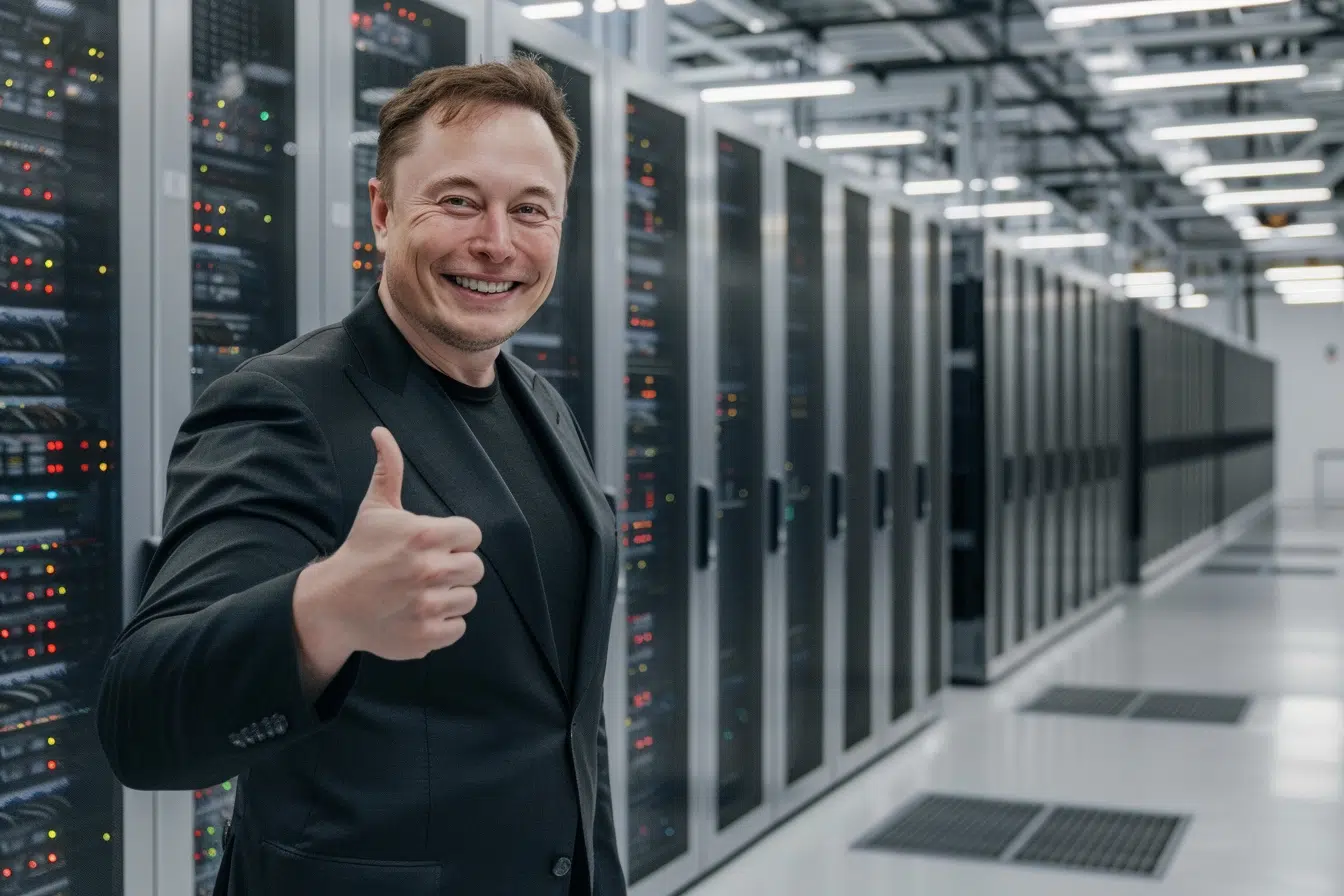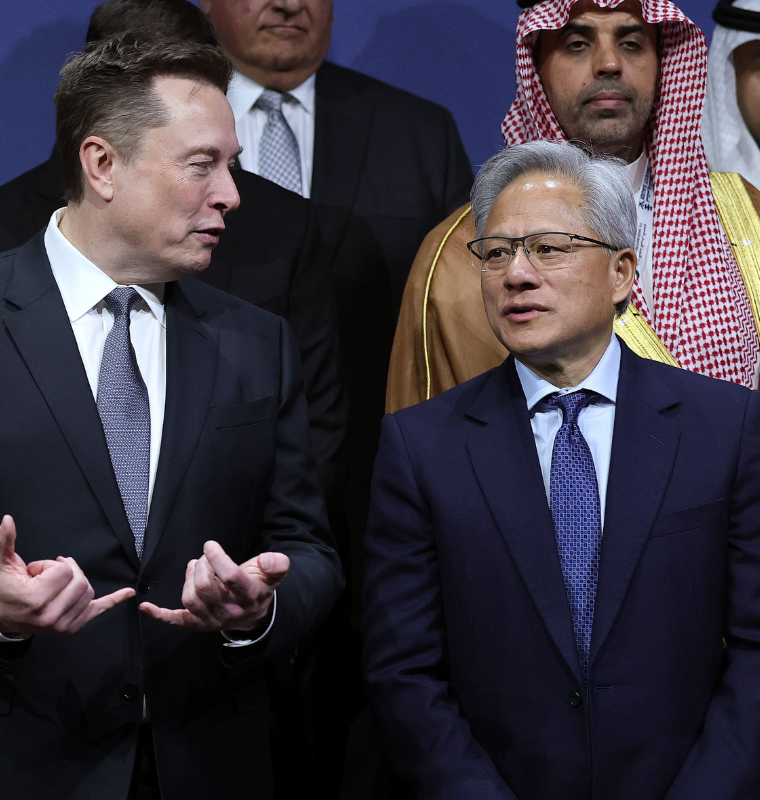Elon Musk Declares: Tesla, Inc. Must Build a Massive Chip-Factory to Fuel Its AI & Robotics Future
Elon Musk Declares: Tesla, Inc. Must Build a Massive Chip-Factory to Fuel Its AI & Robotics Future
By
David Goldfarb
Last updated:
November 7, 2025
First Published:
November 7, 2025

Why Tesla is Urgently Eyeing Its Own Chip Fab
At the company’s annual shareholders meeting, Elon Musk made it clear that Tesla’s ambitions in artificial intelligence and robotics have outgrown the existing semiconductor supply chain. Relying on suppliers like Taiwan Semiconductor Manufacturing Company (TSMC) and Samsung Electronics, Tesla is still facing production constraints despite ramped-up output. Musk asked the pivotal question: “How do we make enough chips?”
He bluntly concluded: even under “best-case” supply scenarios from external partners, Tesla won’t hit the volumes required — hence the notion of building a facility he described as a “gigantic chip fab”, or “Tesla tera fab”.
The Scale & Ambitions Behind the Fab
According to Musk’s remarks:
- The initial target for this proposed fab could reach about 100,000 wafer-starts per month, escalating eventually toward the 1 million wafer-starts/month mark.
- For context, TSMC reported an annual wafer capacity in 2024 of around 17 million wafers — roughly 1.4 million starts/month — underlining the enormity of Tesla’s ambition.
- Musk pointed out that Tesla’s forthcoming “AI5” chip will be designed for drastically lower power consumption (about one-third the power) and massively reduced cost (about one-tenth) compared to current top-tier alternatives.
In practical terms this means Tesla isn’t just building another fab — it’s attempting to build a new scale of semiconductor manufacturing tailored specifically to its software-driven vehicle and robotics hardware stack.
Why Now? The AI & Robotics Imperative
Tesla’s pivot into AI and robotics isn’t a sideline — it’s a foundational strategy. Musk argues that AI and robotics have the potential to multiply global economic output by a factor of 10 or even 100 if scaled properly.
The logic: Tesla’s vehicles, its upcoming robot (Optimus), and autonomous systems generate massive compute demand. Chips aren’t a commodity anymore — they’re the differentiator. Dependence on external foundries creates vulnerability: supply bottlenecks, cost inflation, design compromises. By owning the fab, Tesla hopes to:
- Produce hardware optimised tightly for its own software ecosystem.
- Insulate itself from industry-wide shortages and geopolitical risks.
- Control cost, power consumption, and ramp timing — critical for truly autonomous systems and robotics.
Suppliers, Partnerships and the Road Ahead
Today, Tesla’s chips are fabricated by TSMC and Samsung. Musk also referenced potential discussions with Intel Corporation, signalling that while no formal deal has been signed, the company is exploring a range of options.
One major backdrop: Tesla recently struck a multiyear contract with Samsung to manufacture its next-generation “AI6” chips at Samsung’s Texas plant — a deal valued at approximately $16.5 billion and running up to 2033. That move emphasises both Tesla’s chip urgency and the company’s push to lock in domestic manufacturing capacity.
Given that backdrop, the logic of building its own Fab becomes clearer: with multiple chip generations (AI5, AI6, AI7) on the roadmap, Tesla may want full control over capacity, cost structure and strategic timing.
What It Means for Tesla, Investors & the Industry
For Tesla:
- If successful, the terrafab could establish Tesla not only as an EV manufacturer but as an integrated AI-robotics company with its own hardware ecosystem.
- It could reduce per-unit cost for chips, allow more margin flexibility, and secure capacity for high-volume production of autonomous vehicles and robots.
- However: building fabs is expensive, time-consuming and risky — semiconductor manufacturing requires massive capital investment, precision engineering, and tight supply of raw materials and talent.
For investors and the broader industry:
- Tesla’s move signals that chip-supply is now a strategic bottleneck in the quest for autonomy and robotics scalability.
- Suppliers and fab-owners may see increasing competition or shifting dynamics. Tesla’s in-house ambition could provoke ripple effects across the chip manufacturing ecosystem.
- The timeframe matters: Musk indicated small number of units of AI5 could come in 2026, but full-scale production may only happen in 2027 or beyond.
Final Thought
Elon Musk is betting that tomorrow’s value in mobility, autonomy and robotics will pivot on custom, high-volume, low-cost chips. By declaring the need for a “gigantic chip fab”, Tesla is aiming to move from dependence to independence — from consumer EV maker to full-stack tech company. For those watching the cross-section of cars, AI and hardware, this could be one of the most important shifts this decade.
Popular articles
Subscribe to unlock premium content
How Adults Are Paying to Experience Silent Daylong Festivals for Mindfulness

The Rise of Ultra-Personalized Scent Memory Experiences Using Olfactory Therapy

Why Some Millennials Are Paying for One-Day Luxury Survival Challenges in Nature

How Adults Are Paying to Experience Silent Daylong Festivals for Mindfulness

The Rise of Ultra-Personalized Scent Memory Experiences Using Olfactory Therapy

How Adults Are Paying to Experience Silent Daylong Festivals for Mindfulness







.png)

